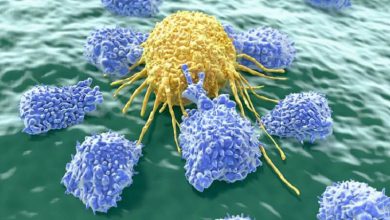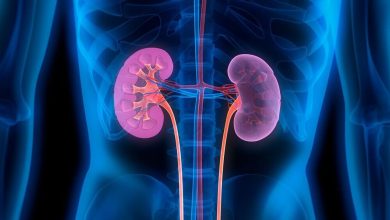Why Does Rejection Occur In Transplants?

Although it is becoming less frequent, transplant rejection can be so serious that it can endanger the life of the patient. Despite the seriousness, it is a largely preventable situation and even if it does occur, it can be treated.
The mechanism by which rejection occurs in transplants is the same by which our body defends itself against infections. Our body is made to attack foreign particles, which in this case are the cells of the transplanted organ.
Immune tolerance and rejection in transplants

The immune system is responsible for defending the body against harmful agents, whether internal, such as altered cells; or external, such as viruses or bacteria. In addition, our body has to be able to recognize its own cells so as not to attack them. This is what is called: immune tolerance.
Immune tolerance depends on the HLA or major histocompatibility complex system. This system is made up of molecules that are recognized by the immune system. There are two large groups of HLA molecules:
- HLA-I molecules are proteins present in the membrane of all cells with a nucleus in our body. Cells of the immune system have receptors for this protein. By recognizing the HLA-I molecule, it recognizes the cell as its own and does not attack it.
- If, on the contrary, this molecule is different or is not present, the immune system is activated and the cell is destroyed. After destroying the cell, remains of the cell are present attached to another membrane protein, HLA-II, present only in immune cells. The part of the pathogen that binds to HLA-II is known as the antigen.
Then, the antigen is presented to other cells of the immune system and are activated, generating a more intense immune response.
Types of rejection in transplants
Depending on the transplanted organ, the risk of rejection may be higher or lower. It must be taken into account that many factors are involved, such as the recipient’s immune system or the amount of blood that reaches the transplanted organ, among others.
There are 3 types of rejection, depending on the time that has passed since the transplant. Let’s see them below.
Hyperacute rejection

This reaction occurs during the first 24 hours after the intervention. It is rare, since specific cells must exist against the organ’s antigens.
This occurs when there has already been contact with these antigens. It can occur in blood transfusions if an incompatible blood type is used.
It occurs because in our body, in the case of group A, there are naturally group B cells against blood, and vice versa. It also occurs when the donor’s HLA molecules are incompatible with those of the recipient. It is rare but may require immediate removal of the organ.
Acute rejection
It occurs in the first months after transplantation. The immune system recognizes the transplanted cells as foreign and specific cells (T lymphocytes) are created to attack them. These cells take time to activate, so the interval can vary.
Chronic rejection

It happens after several months or even years. It is not known exactly what produces it, it seems that in this case the immune response is less intense. It occurs mainly in the organ’s blood vessels, which eventually become clogged and may require the transplanted organ to be removed.
Can transplant rejection be prevented?
There are prevention measures that prevent rejection in transplants to a greater or lesser degree. To choose a suitable donor, you have to make sure that their cells are compatible with those of the recipient. Must take into account:
- AB0 compatibility, that is, they have the same blood group.
- HLA system compatibility. The cells of this system are essential in immune tolerance. Sometimes it is not possible to find a donor with the identical HLA system to that of the recipient, but you have to try to make them as similar as possible.
After transplantation, it is almost always necessary for the recipient to take immunosuppressive drugs. What these drugs do is weaken the immune system to prevent it from attacking the transplanted organ in an intense way.
The problem is that depressing the immune system has consequences. Subjects with this treatment may require it for life, predisposing them to infection and even cancer.
With these measures, hyperacute rejection is very rare. In the case of acute rejection, it does not have to cause organ failure, it can remit with the administration of more immunosuppressants.
The most common cause of transplant failure is chronic rejection. Over the years the organ may eventually fail, and another transplant may be necessary.
To consider
Remember that transplant rejection is something that must be attended by a medical professional. If you are waiting for an organ transplant or have already received it and have any questions, visit your doctor. This will be able to do all the necessary reviews and examinations to clarify your concerns.









